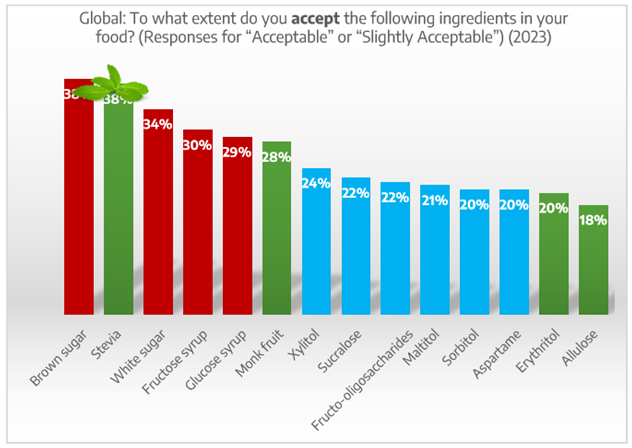Health, natural ingredients, and reduced sugar content are no longer niche trends, but instead they now represent mainstream demands. This has prompted a wave of innovation across the industry, with beverage manufacturers working to actively reformulate products and to meet these shifting expectations.
Brands Respond with New Product Development and Launches
Pepsi in the UK recently announced the launch of its limited-edition Electric Blue, a new citrus-flavored, zero-sugar blue cola. The product was designed to cater to younger consumers while tapping into the current popularity of fruit flavors and sugar reduction. Pepsi’s product development approach behind Electric Blue exemplifies the broader industry’s growth opportunities in today’s flavored cola market.

Public Health and Regulatory Pressures
The impetus for this shift goes beyond consumer preferences. According to the National Health and Nutrition Examination Survey (NHANES) in the US, sweetened beverages comprise the top dietary source of added sugars. For low-income and minority populations in particular, as much as 50% of excess calories are consumed from sugary drinks. Recognizing this, the World Health Organization advocates for global action to curb sugar-sweetened beverage consumption. Additionally, countries are implementing sugar taxes to regulate sugar intake.
As a result, the industry is accelerating its efforts to reduce sugar. According to Innova Market Insights, nearly 20% of global beverage launches between 2018 and 2023 boast sugar reduction claims. Juices, dairy alternatives, carbonates, and iced tea are the most active segments in this space.
Vita Lemon Tea’s Cautionary Tale
The case of Vita Lemon Tea in China highlights the challenges associated with reformulation. While the brand aimed to attract new consumers with a “head-to-toe” transformation, including new packaging and a zero-sugar, zero-fat, zero-calorie formula, the new formula received negative feedback from consumers attached to the traditional taste of a product they had known and loved for so long. For many of the brand’s consumers, they especially questioned why Vita Lemon Tea would replace its formula with one containing the use of artificial sweeteners.

Consumers Demand Clean Labels and Natural Sweeteners
This story of Vita Lemon and others underscore the importance of natural ingredients alongside sugar reduction. Consumers are increasingly wary of artificial sweeteners, favoring plant-based alternatives like stevia. Innova’s Health & Nutrition Survey in 2023 confirms this trend, with stevia being the most accepted sugar substitute.

Finding the Perfect Balance with Stevia
The rise of stevia reflects consumer preferences for healthy, natural, and flavorful beverages. Beverage launches utilizing stevia are increasing annually, with iced tea, carbonates, and fruit/flavored drinks leading the way.
While stevia holds promise, it’s not a one-size-fits-all solution. Tapping into the full range of glycosides as well as complementary sweeteners is essential. It’s why Tom Fuzer, Vice President of Market Strategy at HOWTIAN, emphasizes that the company’s “comprehensive range of natural sweetening solutions is essential in our being able to offer superior taste performance and significant cost savings over sugar.”
The beverage industry is undergoing a significant transformation driven by consumer demand for healthier, natural, and lower-sugar options. Ingredient manufacturers are paving the way with innovative solutions, while beverage brands are actively reformulating products. Finding the right balance between sugar reduction, natural ingredients, and taste remains an ongoing challenge, but stevia is poised to be the natural sweetener of choice to meet these demands.
